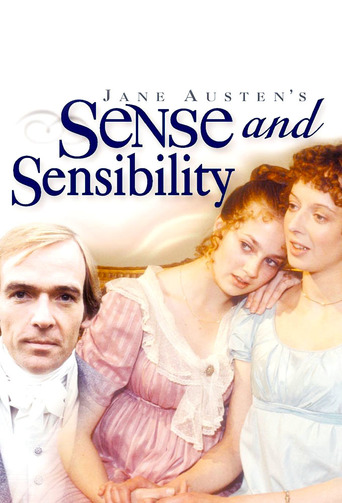

This Movie Can Only Be Described With One Word.
... View MoreThe greatest movie ever made..!
... View MoreThere's a more than satisfactory amount of boom-boom in the movie's trim running time.
... View MoreThe storyline feels a little thin and moth-eaten in parts but this sequel is plenty of fun.
... View MoreI don't think this is the worst movie ever made by any means but I did not like it at all. Sure, it tells the story well enough, but the acting really is atrocious.The Dashwood Ladies (the mom and Mrs. John Dashwood included) all did a decent job, as well as Edward, Willowby, and Colonel Brandon. Nothing extraordinary, but they get the job done. My issue was with the supporting players. All of them sounded like they were reading from scripts, esp. Lucy, Miss Steele, Charlotte, and Mrs. Jennings. I had the biggest issues with Charlotte and Miss Steele. Charlotte's laugh even sounded scripted (ha ha ha ha) with no authenticity whatsoever. **SPOILER ALERT** When Miss Steele drops the bomb and Fanny Dashwood flips out, Miss Steele's cowering looks somewhere between hypothermia and seizures. Also, none of the actors had the emotional depth needed for this story. Whenever one of the actresses was trying to hold back tears, there is no look of restraint before they burst into tears, so it looks very odd and bi-polar. Also, when Brandon is taking Marianne out of the party, there is no sense of urgency. Elinor just strolls out after them. I would think, if your sister has fainted, you would feel like maybe you should move a little quicker. Mrs. Jennings had good moments but I was totally thrown off by her closeup after Elinor tells her off; and she never came back from that for me.Basically, I would say go with the 1995 version, there is excellent acting, better looking people, better cinematography (it isn't really the movie's fault that it's so bad in that department since it was in 1981), the stuff that needs to be in there is, and they don't add anything too Hollywood to it. This version added nothing to the story for me, and I found it very unromantic (probably the best description as to why this movie is lacking for me in comparison to the 1995 version). The novel has very romantic moments but no part of this movie gave me that "Aw" heartwarming moment.
... View MoreHaving watched the 1995 movie for the first time a few days ago,I decided to watch this fine BBC production again,and found it the more satisfying of the two.The acting was of a good standard;Tracey Childs splendid as Marianne,and Bosco Hogan's interpretation of Edward Ferrers far exceeded Hugh Grant's peculiar effort in the Ang Lee film.The direction and location filming in Dorset/Somerset and the authentic early 1800's feel more than compensated for the budget constraints.Also,Willoughby's telling confession to Eleanor as Marianne lay seriously ill upstairs was,thankfully,retained,unlike the 1995 version.A good miniseries,more Jane Austen than it's "grander" successor!Nine out of ten!
... View MoreThis 3-hr miniseries seems to me much more faithful to the novel than the 1995 film by Ang Lee and Emma Thompson. the characters were as I pictured them while reading the novel. I find Edward a credible character and the love affair between him and Elinor skilfully and sensitively portrayed. (They make a much more convincing couple than stuttering Hugh Grant and Miss Thompson...) Best of all, the relationship between the two sisters : their tenderness and love in spite of their very different temperaments is convincingly depicted. I just felt the 1995 adaptation missed that aspect which made Elinor hysterics at ill Marianne's bedside all the more absurd and ill-timed. In this miniseries, there are no such hysterical scenes during Marianne's illness, Mrs Jennings is there just as in the book. The dialogues are almost word for word from the novel. The slow pace is suitable because so is the novel. Just one flaw : the end which seems a bit abrupt, as if they were running out of time. A really lovely series.
... View MoreAn excellent adaptation of the Austen novel, though the production values can`t compare with the later film. The script is faithful to the original. The performances by the male leads are a bit bland.
... View More